| Zeitschrift Umělec 2003/1 >> Inside the Black Cube | Übersicht aller Ausgaben | ||||||||||||
|
|||||||||||||
Inside the Black CubeZeitschrift Umělec 2003/101.01.2003 Dunja Christochowitz | neuigkeiten | en cs |
|||||||||||||
|
“I make technology look ridiculous”
Nam June Paik If you aim your gun at somebody, even if you do it in a playfull manner, you may hurt yourself fatally. When President Bush came to visit Berlin in May 2002, German security forces were on red alert. In Bejing, a young man destroys the windows of his family’s already discarded country house, so his dead relatives’ souls can escape the locus delicti, doomed for complete demolition the following day. This kind of “information” is easily retrieved from video art, in this case namely from three pieces of the “Fair Play” Video festival for young video artists at Play Gallery for Still and Motion Pictures in Berlin. Bejing Film Academy Graduate Wu Ershans’ Fire (2003), Iran born Shahram Entekabi’s Klaatu Barada Nikto (2002) and Luxun Academy of Fine Arts (Shenyan, P.R. of China) student Zhao Liang’s Boring News (2000) are three of 19 video works shown in the context of the festival. Video arts first objective is seldomly found in the field of transmitting “information,” but by means of conceptual esthetics it may explore the interconnections between film, art and video inasmuch as the pictures put in artistic context take from fiction, arrangement and their composition of “frames,” just as paintings do. Video art leaks into the most different fields of moving picture formats and is at the same time always challenged by sister-formats as commercials, music videos and or new media esthetics. This is why video art needs the gallery context, the very space of its presentation, to examine its artistic potential. “So powerful are the perceptual fields of force within that chamber (the gallery space) that, once outside it, art can lapse into secular stautus,” writes Patrick Ireland aka Brian O’Doherty in his famous essay series on the Gallery Space “Inside the White Cube.” And further: “Conversely, things become art in a space where powerful ideas about art focus on them.” When MTV trained director Wu Ershan shows in Fire how hard it really is to account for the dreamlike, nightmarish mezzanine, his protagonists dwell in, he is quite consciously using his set as a space of focus, just as the gallery does with his work. A table on a Bejing rooftop with two dice players and a gun are the objects of his study of brutality and game. “The so-called art world,” he says in an artist statement on Fire, “is just a house of madness controlled by smart guys. Here there is no such thing as utopia.” No comment on his over-simplified assessment of the art world, his stressing of the non-utopian character of his set can be taken as a very integral statement on contemporary video art. Videos shown in a gallery in the form of a festival leave enough space for questions the art world may have about the genre. “The main goal of our gallery,” say Franco Marinotti and Wolf Guenter Thiel from Play Gallery, “is to fascinate and stimulate visitors with new visual languages and narratives that re- present an alternative to the flood of images transmitted by traditional media and adverstising.” Visual codes are not on display for the audience to choose from different schemes of relevance their respective artistic value, their significance merely stems from a hermaphroditic notion immanent to moving picture production in an art context: Contemporary video art can take the liberty to not care about code conventions since there are no generally approved codes valid for the art context alone. Video images — found footage, animation, typography, fiction or documentary, with or without soundtrack, taken from emotional experiences or political notions — video artists always compete with their prominent counterpart from TV Nation’s picture arsenal, which constantly continues to (re-)produce. In that respect, video art does have a formal history , but following Derridas’ concept of the “perergon,” the greatest formalism, the purest art, is to make purity impossible. Video art, as Marinotti and Thiel justly point out by admitting that “while working on the strategy for this new venture, we knew we would have to use a non-traditional approach in showing artists’ projects,” is not apt for formal purity. The artists presented in the Fair Play festival competetion, be it Wu Ershan, the Brazilian artist Debora Hirsch (Easter Eggs, 2003) or Hong Kong-based Stella So (Very Fantastic, 2002), they all neglect purity much to the advantage of their works’ personal impact. The results are stunningly informative as to the state of contemporary video art. The viewer can extract from those pieces “information” which is fine commentary on the video medium known from other contexts. The videos also insist on the impossibility of pure entertainment, pure information or pure esthetics in video art. Fair Play in Berlin assembles works of international video artists, who went through a broad selection process. Nine international curators were asked to present their choice of young relevant artists and their work: Ellen Pau from Hongkong, Kathrin Becker from Germany, Leng Lin from China, Michael Darling, Michele Mac-carone and Ombretta Argo from the USA and Milovan Farronato and Ivanmaria Mele from Italy. The resulting 190 proposals were screened by Marinotti and Thiel in order to come up with the final selection of the festival nominees. In mid July a nominated jury consisting of eight curators, academics and artists, will elect a first prize and a second prize, both awards consisting of a solo show at Play Gallery in 2004, plus the winner will also be awarded the publication of an artist’s book by Fine Arts Unternehmens Books. Fair Play Video Art Festival at Play Gallery for Still and Motion Pictures, Berlin, through the end of August. The festival will go on tour. www.pushthebuttonplay.com Participating artists: Jonah Free-man (USA), Matt Saunders (USA), Margret Salmon (UK), Vesna Bukovec (SLO), Cecilia Lundqvist (SWE), Jón Sae-mundur Audarson (IS), Shahram Entekabi (IRAN), Deborah Hirsch (BRA), Nuno Cero (PT), Johan-nes Maier (D), Nicolas Serrano (ES), Zhao Liang (CHINA), Wu Ershan (CHINA), Stello So (HK), GUP-py (JP), Sayaka Kasahara & Kenji Kamoshida (JP), Cac-ciagrilli (IT), Gina Tornatore (AUS), Chiara Pirito (IT).
01.01.2003
Empfohlene Artikel
|
|||||||||||||
|
04.02.2020 10:17
Letošní 50. ročník Art Basel přilákal celkem 93 000 návštěvníků a sběratelů z 80 zemí světa. 290 prémiových galerií představilo umělecká díla od počátku 20. století až po současnost. Hlavní sektor přehlídky, tradičně v prvním patře výstavního prostoru, představil 232 předních galerií z celého světa nabízející umění nejvyšší kvality. Veletrh ukázal vzestupný trend prodeje prostřednictvím galerií jak soukromým sbírkám, tak i institucím. Kromě hlavního veletrhu stály za návštěvu i ty přidružené: Volta, Liste a Photo Basel, k tomu doprovodné programy a výstavy v místních institucích, které kvalitou daleko přesahují hranice města tj. Kunsthalle Basel, Kunstmuseum, Tinguely muzeum nebo Fondation Beyeler.
|







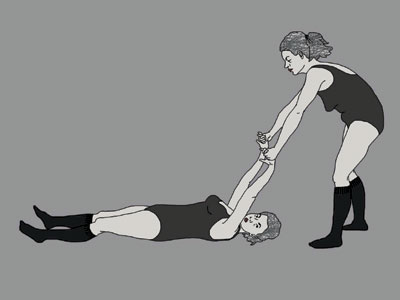
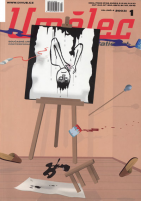



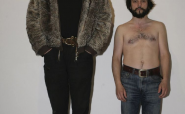
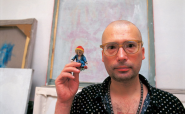
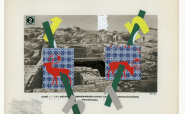
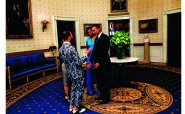







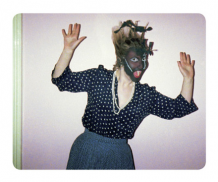




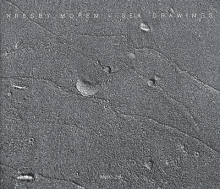
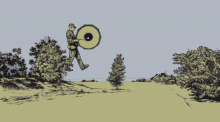
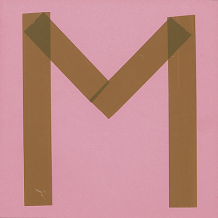
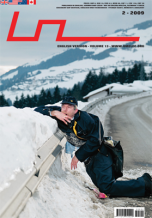


 New book by I.M.Jirous in English at our online bookshop.
New book by I.M.Jirous in English at our online bookshop.
Kommentar
Der Artikel ist bisher nicht kommentiert wordenNeuen Kommentar einfügen